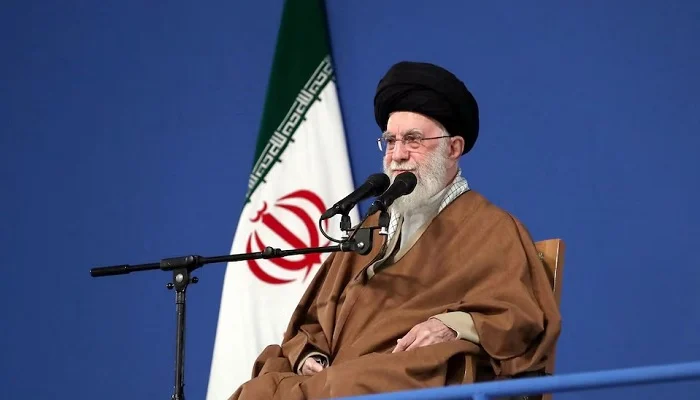Supreme Leader Ayatollah Ali Khamenei conveyed on Tuesday that he maintains a stance of “neither overly optimistic nor pessimistic” regarding discussions with the US concerning Iran’s nuclear program. This statement appears to be an effort by Tehran to temper the growing public expectations surrounding a potential agreement.
Iranian politicians and insiders have expressed concerns that the failure to secure a deal with President Donald Trump to resolve Iran’s decades-long dispute with the West could inflict substantial damage on the Islamic Republic, even if Tehran subsequently portrays Washington as the responsible party.
Following the recent talks between Tehran and Washington in Oman, which both sides described as positive, there has been a noticeable surge in Iranian expectations for economic relief, as indicated by telephone interviews and social media posts from Iranians.
The two parties have agreed to continue their discussions on April 19 in Oman.
Iran’s struggling rial currency has experienced a roughly 20% appreciation against the dollar in the past few days, fueling hopes among many Iranians that an agreement leading to the end of Iran’s economic isolation might be within reach.
“We are neither excessively hopeful nor doubtful concerning them. After all, it is a process that was decided upon, and its initial steps have been executed well,” Khamenei stated during a meeting with lawmakers, according to state media reports.
Tehran has approached these talks with caution, harboring doubts about the likelihood of a final agreement and harboring suspicion towards Trump. It’s worth recalling that Trump unilaterally withdrew from Tehran’s 2015 nuclear agreement with six world powers during his first term in 2018 and has repeatedly issued threats to bomb Iran should a deal not be reached.
“From this point forward, these talks must be pursued carefully, with clear red lines established for both the other side and ourselves. The negotiations may yield results, or they may not,” Khamenei cautioned.
“Avoid tying the nation’s fate to these discussions.”
Ever since relations with Washington collapsed following Iran’s 1979 Islamic revolution, which ousted the US-backed Shah, hostility towards the United States has consistently served as a unifying principle for Iran’s clerical leadership.
However, the pressures of inflation, unemployment, and a lack of investment stemming from the crippling sanctions that were reimposed after Trump abandoned the 2015 nuclear pact ultimately persuaded Khamenei to support engaging in talks with the Trump administration.



